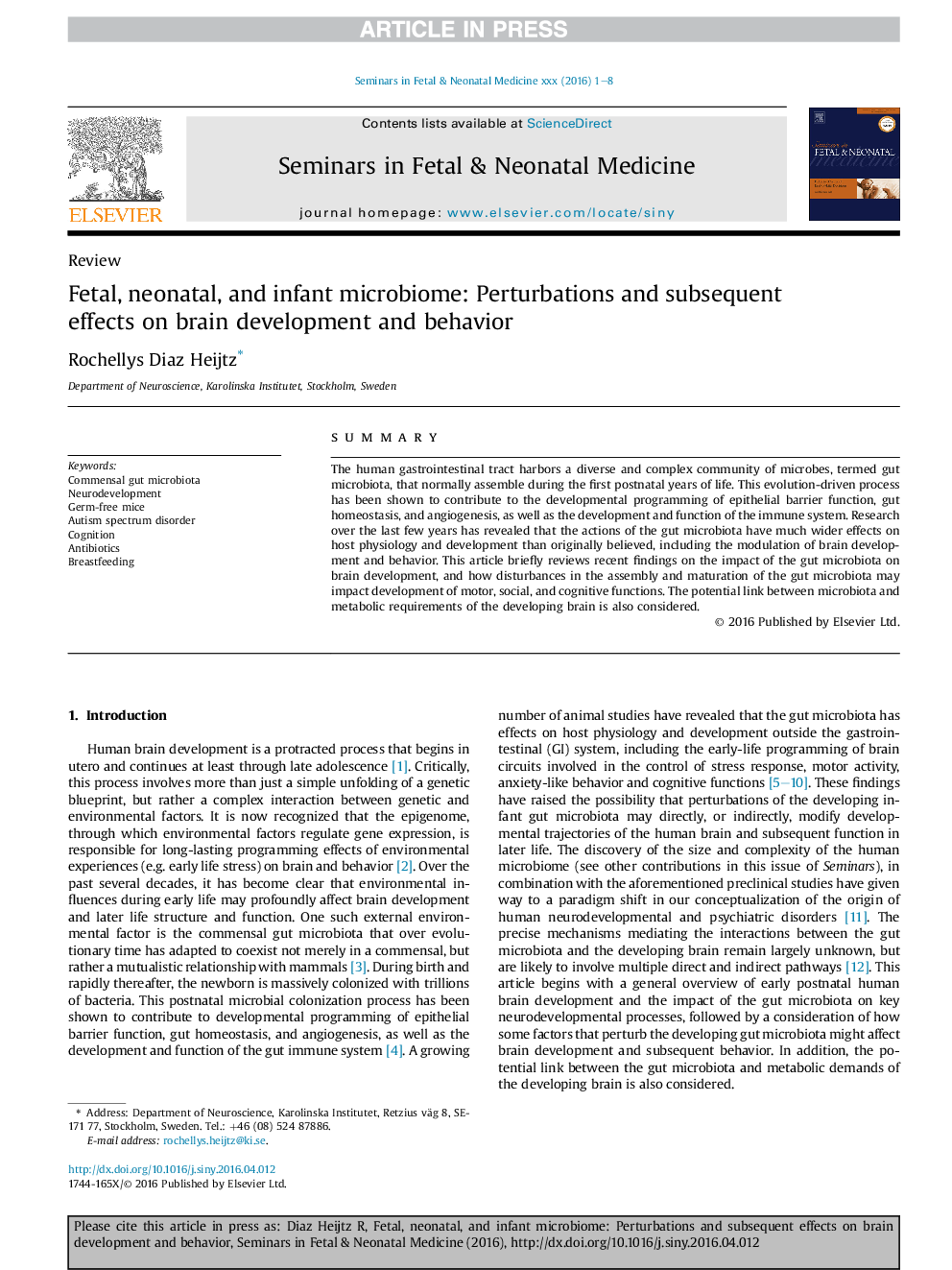| Article ID | Journal | Published Year | Pages | File Type |
|---|---|---|---|---|
| 5696919 | Seminars in Fetal and Neonatal Medicine | 2016 | 8 Pages |
Abstract
The human gastrointestinal tract harbors a diverse and complex community of microbes, termed gut microbiota, that normally assemble during the first postnatal years of life. This evolution-driven process has been shown to contribute to the developmental programming of epithelial barrier function, gut homeostasis, and angiogenesis, as well as the development and function of the immune system. Research over the last few years has revealed that the actions of the gut microbiota have much wider effects on host physiology and development than originally believed, including the modulation of brain development and behavior. This article briefly reviews recent findings on the impact of the gut microbiota on brain development, and how disturbances in the assembly and maturation of the gut microbiota may impact development of motor, social, and cognitive functions. The potential link between microbiota and metabolic requirements of the developing brain is also considered.
Related Topics
Health Sciences
Medicine and Dentistry
Obstetrics, Gynecology and Women's Health
Authors
Rochellys Diaz Heijtz,
